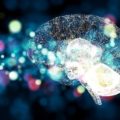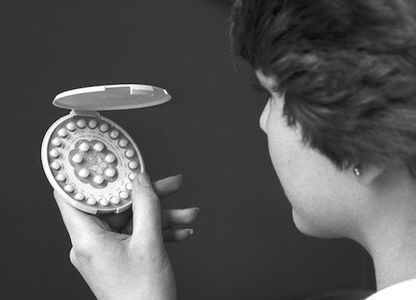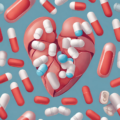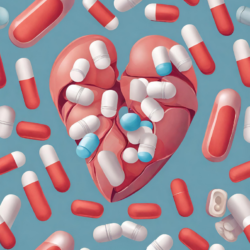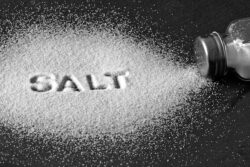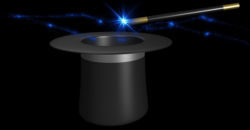For months after my stroke, I heard what I can only describe as a dishwasher in my head. The whooshing, which was accompanied by a sensation sort of like when you feel like you need to pop your ears, started in the hospital shortly after I was moved from the ICU to a regular hospital room. When I asked my doctors about the sound in my head, the ongoing whoosh whoosh, they did what they so often did when I asked questions. They looked at me oddly then dismissed it as nothing to worry about. What I saw on their faces was this: “We have no idea what you’re talking about but you really shouldn’t be here so just be happy that you made it.” So I stopped asking about it. In the weeks following my stroke, I experienced it several times a day but after a few months, I would only hear the dishwasher every once in a while. Thankfully, now I only hear it when I am actually washing dishes.
I all but forgot about the dishwasher in my head until I ran across A Quest To Explain the Whooshing In Her Head.
Pulsatile Tinnitus
Apparently, the dishwasher in my head is called “pulsatile tinnitus” but it’s not actually tinnitus at all. Emma Greenwood started the site whooshers.com after experiencing difficulty getting her own pulsatile tinnitus diagnosed. As the site says, “According to many major medical institutions, only 3% of tinnitus sufferers experience pulsatile tinnitus. The rare symptoms create challenges for patients and diagnostic challenges for the medical communities that serve them.” For this reason, she has become a champion of the condition. A quick google search of pulsatile tinnitus shows just how pivotal Greenwood’s work has been. There simply isn’t much information about it and what you can find is usually a side-note to information on tinnitus, though the two aren’t really related.
So What Is It?
Tinnitus is categorized by a “ringing in the ears” or hearing noise that isn’t there and is primarily an auditory condition. This type of tinnitus is usually caused by hearing malfunction. Yet with pulsatile tinnitus, the patient is actually hearing a verifiable sound. These sounds can often be detected by a doctor and, in some cases, people with the condition have even been able to record the sound. If you don’t know what a dishwasher sounds like or you want to hear for yourself what it’s like to have pulsatile tinnitus, you can find audio clips on whooshers.com.
What Causes It?
Pulsatile tinnitus can be caused by abnormalities in the veins or the arteries and it often occurs only in one ear (unless the cause is bilateral). While regular tinnitus is considered more a nuisance than dangerous, pulsatile tinnitus comes with the possibility of some very serious and potentially life-threatening medical conditions. These conditions include:
- Vascular stenosis or narrowing of blood vessels which is often caused by atherosclerosis or a thickening of arteries
- Aneurysms or a bulging or weak area of an arterial wall
- Anatomical variants and abnormalities of the arteries or veins
- Intracranial hypertension or pressure in and around the brain (incidentally, this is a side-effect of the Mirena IUD)
One fifteen-year study of 110 patients with pulsatile tinnitus found that most patients had benign swelling of the brain (56) followed by blockage or narrowing of the carotid arteries (24). In 13 patients, no specific diagnosis could be reached.
In another study of 84 patients, a “vascular disorder was found in 36 patients (42%), most commonly a dural arteriovenous fistula or a carotid-cavernous sinus fistula. In 26 patients with a vascular abnormality, pulsatile tinnitus was the presenting symptom. In 12 patients (14%), nonvascular disorders such as glomus tumour or intracranial hypertension with a variety of causes explained the tinnitus.”
Silencing the Whoosh
Though my dishwasher has been silent for years now, I’m grateful that I’ve come across this information. Because my doctors had no idea what I was talking about, it’s not clear what caused my pulsatile tinnitus. My best guess is that I was hearing the sounds of the veins in my head recover from a traumatic brain injury. Now I know that if I ever start to hear it again, I need to have the health of the arteries and veins in my brain examined. And I need to keep looking until I find a doctor who will take me seriously. For now, it’s nice to know that it wasn’t all in my head.
We Need Your Help
More people than ever are reading Hormones Matter, a testament to the need for independent voices in health and medicine. We are not funded and accept limited advertising. Unlike many health sites, we don’t force you to purchase a subscription. We believe health information should be open to all. If you read Hormones Matter, like it, please help support it. Contribute now.
Yes, I would like to support Hormones Matter.
This post was published originally on Hormones Matter on November 8, 2016.



